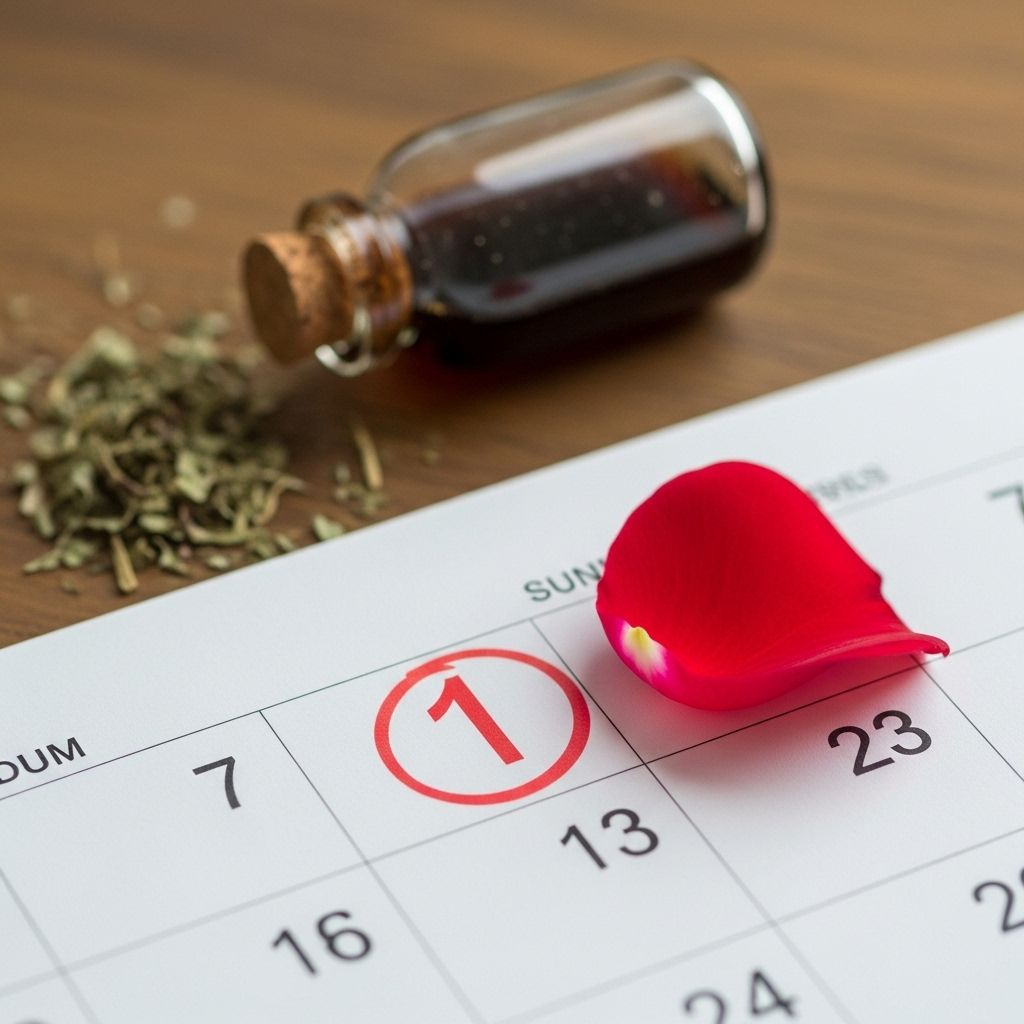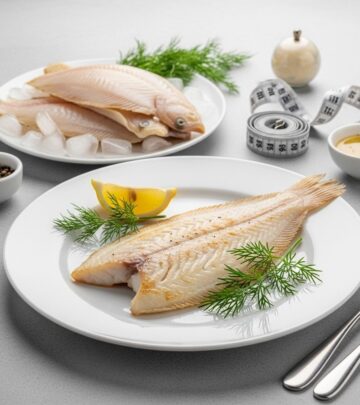How to Get Periods Early: Remedies, Risks & Guidance
Discover safe strategies and insights to navigate menstrual timing with confidence.

Waiting for your period can sometimes become a source of stress, especially when important events, travel plans, or health conditions make the timing inconvenient. If you’re seeking ways to induce your menstrual cycle before its expected date, it’s vital to understand which methods may work, their safety, and potential side effects. This comprehensive article explores natural remedies, medical options, and essential precautions, helping you make informed decisions about advancing your period safely.
Table of Contents
- Understanding the Menstrual Cycle
- Is It Possible to Prepone Periods?
- Natural Methods to Prepone Periods
- Home Remedies for Early Periods
- Medical Methods and Medications
- Risks & Precautions
- Frequently Asked Questions (FAQs)
Understanding the Menstrual Cycle
The menstrual cycle is a series of hormonal and physiological changes occurring roughly every 21 to 35 days in healthy individuals. It involves four phases: menstrual, follicular, ovulation, and luteal. Typically, a period occurs when the lining of the uterus sheds due to the absence of pregnancy, resulting in bleeding that lasts between 3 and 7 days.
- Menstrual phase: Shedding of the uterine lining; bleeding occurs.
- Follicular phase: Ovarian follicles mature; estrogen rises.
- Ovulation: Release of a mature egg; around day 14 in a 28-day cycle.
- Luteal phase: Post-ovulation; progesterone rises and then falls if pregnancy does not occur.
Certain factors like stress, diet, physical activity, medical conditions, and medication can influence the timing and regularity of your menstrual cycle.
Is It Possible to Prepone Periods?
Advancing menstruation is possible in some cases, but not always guaranteed. Natural remedies, lifestyle changes, and some medications may influence hormonal activity and thereby the timing of periods. However, the effectiveness of such approaches varies from person to person, depending on their overall health, underlying causes, and individual hormonal patterns.
- Short-term or one-off advancement may be possible.
- Consistent attempts to alter your cycle can result in irregular periods and health risks.
- Always consult a doctor before trying medical methods to induce periods early.
Natural Methods to Prepone Periods
Dietary choices, herbal remedies, and certain lifestyle adjustments may help regulate or prompt the menstrual cycle. While traditional wisdom supports many of these methods, scientific evidence is limited for most. Here are popular natural techniques women often use:
1. Vitamin C-Rich Foods
Vitamin C is thought to increase estrogen levels and contract the uterus, potentially helping prompt menstruation. It may also enhance iron absorption and overall uterine health.
- Include foods like oranges, lemons, grapefruit, broccoli, and spinach.
- Excessive vitamin C intake can cause side effects; avoid high-dose supplements without medical supervision.
2. Papaya
Unripe or green papaya is commonly recommended to stimulate uterine contractions due to its high content of carotene. It is believed to influence estrogen levels, possibly helping trigger menstrual flow sooner.
- Fresh papaya juice or salads may be consumed for a few days leading up to the anticipated period date.
3. Pineapple
Pineapple contains bromelain, an enzyme that may affect the uterus and hormones, potentially helping to induce menstruation.
- Eating pineapple or drinking fresh pineapple juice may help, though evidence is anecdotal.
4. Turmeric
Turmeric is an anti-inflammatory spice believed to balance hormones and promote uterine activity.
- Use turmeric in milk or warm water for several days.
5. Ginger
Ginger is said to increase body heat and aid uterine contractions, possibly helping prepone periods.
- Drink ginger tea or chew fresh ginger regularly for a few days.
6. Physical Activity
Exercise can improve blood circulation, reduce stress, and influence hormonal patterns, which may help bring on menstruation.
- Engage in moderate activities like brisk walking, swimming, or aerobic workouts.
7. Heat Therapy
Applying heat to your lower abdomen may increase blood flow, relax muscles, and stimulate menstruation.
- Use a hot water bottle or heating pad for 15–30 minutes at a stretch.
8. Relaxation and Stress Management
Excess emotional or physical stress can delay periods. Relaxation techniques may help restore cycle regularity.
- Practice yoga, meditation, breathing exercises, or gentle stretches.
Home Remedies for Early Periods
Several home remedies rooted in herbal or cultural practices are popular for triggering periods. Scientific evidence for these is limited; results may vary:
- Parsley Tea: Parsley is said to promote uterine contractions; steep in hot water and consume up to twice daily.
- Fenugreek: Traditional use includes fenugreek seeds soaked in water or included in dishes.
- Carom Seeds (Ajwain): Used in Indian households; boil with water and drink the strained solution.
- Sesame Seeds: Often consumed with honey or boiled in water to stimulate periods.
- Coriander Seeds: Prepare a decoction and drink for a few days as periods approach.
If you’re considering these remedies, ensure you aren’t allergic or otherwise sensitive to the ingredients. Always monitor for adverse reactions and consult your doctor if you have underlying medical conditions, are pregnant, or take regular medications.
| Remedy | How It Works | Typical Usage | Efficacy |
|---|---|---|---|
| Papaya | Stimulates estrogen, contracts uterus | Raw or juice, daily for several days | Anecdotal |
| Pineapple | Bromelain enzyme may affect hormones | Fresh, as fruit/juice | Limited evidence |
| Vitamin C | Might increase estrogen & iron absorption | Citrus fruits, vegetables | Mixed scientific support |
| Heat Therapy | Increases blood flow, relaxes uterus | Apply heating pad | Common practice |
| Ginger | Boosts body heat, stimulates menstruation | Tea or raw, daily | Anecdotal |
Note: None of these remedies are guaranteed. If results are not seen after a few cycles, seek medical advice.
Medical Methods and Medications
Doctors may prescribe hormonal medications to induce periods in specific situations, usually for health management rather than convenience. Common prescriptions include:
- Progesterone tablets: Helps shed the uterine lining when taken for 5–10 days.
- Birth control pills: Manipulation of combined oral contraceptives can be used to control menstrual timing for special circumstances.
- Hormone therapies: Used to treat underlying conditions like PCOS, amenorrhea, or hormonal imbalance.
You should never self-medicate or obtain hormone tablets without a prescription, as they can cause profound changes in your cycle and have side effects such as nausea, headaches, mood swings, and risk of blood clots.
Risks & Precautions When Attempting Early Periods
- Irregular Cycle: Repeated attempts to advance periods can make future cycles unpredictable, affecting fertility and overall reproductive health.
- Hormonal Side Effects: Both natural remedies in excessive doses and medications can disturb hormonal function, risk PCOS (polycystic ovarian syndrome), or thyroid issues.
- Underlying Disorders: Delayed or missed periods may signal health problems such as hypothyroidism, PCOS, or stress-related disorders; advancing menstruation without diagnosis can mask or worsen these.
- Pregnancy Risks: Attempting to bring on periods while pregnant can risk fetal development or cause miscarriage. Always confirm your pregnancy status before trying any method.
- Allergic Reactions: Herbal and food remedies can occasionally cause allergies or gastric distress in sensitive individuals.
It is vital you consult a doctor before attempting to manipulate your period, especially if your cycle is habitually late, missed, or irregular.
Frequently Asked Questions (FAQs)
Q: Are natural remedies for early periods safe?
Natural remedies such as dietary changes or herbal teas may be safe for most people when used moderately and with care. However, scientific support is limited, and results may vary. Avoid excess doses and if you have chronic illnesses, consult your physician first.
Q: How effective are home remedies like papaya, pineapple, or ginger?
These foods are commonly believed to help induce periods, but scientific evidence does not strongly support their efficacy. If you do not see results, avoid prolonged or repeated use and seek professional advice.
Q: When should I see a doctor about delayed periods?
If your period is consistently delayed, absent for more than three cycles, unusually painful, or associated with other symptoms (excessive hair growth, weight changes, fatigue), see a healthcare provider for evaluation.
Q: Can medicines induce periods early?
Medications like progesterone or combined oral contraceptives can induce periods, but must be prescribed by a doctor for specific circumstances, such as travel, exams, or underlying health issues. Self-medicating is unsafe.
Q: Will trying to prepone my period affect fertility?
Occasionally inducing periods is unlikely to affect fertility, but repeated manipulation of your cycle may lead to hormonal imbalance and long-term reproductive effects. Always proceed cautiously and only for legitimate medical reasons.
Essential Tips to Safely Manage Your Menstrual Cycle
- Maintain a balanced diet, regular exercise, and healthy sleep patterns to support hormonal balance.
- Track your cycle monthly to identify patterns or irregularities early.
- Avoid repeated or high-dose use of natural or medical remedies without guidance.
- Stay hydrated and reduce stress for optimal menstrual health.
- If you experience troubling symptoms, missed periods, or suspect pregnancy, seek medical advice.
Takeaway
While a variety of natural, home, and medical remedies exist to induce periods early, safety and efficacy vary widely. Most home remedies are based on tradition and anecdotal evidence rather than robust science. If advancing your period is essential, prioritizing health by seeking professional advice should be your first step. Never use medications or herbal products to induce periods if you may be pregnant or have underlying health conditions.
References
- https://www.youtube.com/watch?v=05t8Lam8G24
- https://jamanetwork.com/journals/jamanetworkopen/fullarticle/2819141
- https://www.stylecraze.com/articles/how-to-stop-your-period-early/
- https://www.stylecraze.com/articles/how-to-get-rid-of-period-bloating/
- https://pmc.ncbi.nlm.nih.gov/articles/PMC4844476/
- https://www.womenshealthmag.com/health/a43579956/early-period/
Read full bio of medha deb











